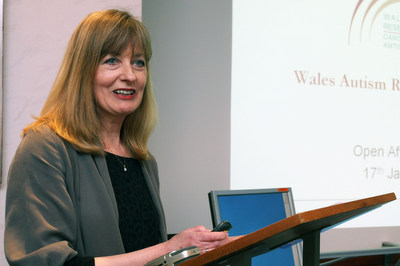Psychologists at Cardiff University have developed the first self-assessment test for autism.
The test measures the extent to which adults are affected by repetitive behaviours, one of the criteria used to diagnose the condition.

Professor Sue Leekam: “What our research has done is develop a test where individuals can report on their own behaviours”
These behaviours include lining up objects or arranging them in patterns, fiddling obsessively with objects, or insisting that aspects of a daily routine remain exactly the same.
Researchers say that the test is a reliable way of measuring these behaviours to indicate when they are unusually frequent or severe.
Cardiff University said it was remarkable that increased behaviours normally assessed in infancy can also be measured in a self-report form in adulthood.
The Cardiff researchers worked with La Trobe University in Melbourne to carry out trials. They used a total of 229 British and Australian people with and without an autism diagnosis. The adults with an autism diagnosis were found to demonstrate a significantly higher tendency for repetitive behaviours.
It is hoped that the test will help to improve the way that clinicians diagnose autism. However, the test cannot diagnose autism on its own because repetitive behaviours are only one criterion for an autism diagnosis.
Another factor is that repetitive behaviours are not unique to autism. They are also common in Obsessive-Compulsive Disorder (OCD), Parkinson’s disease and Tourette syndrome.
Professor Sue Leekam, Cardiff University’s Chair of Autism and director of the Wales Autism Research Centre, said: “Many measures used for research and diagnoses of autism rely on parents, teachers or caregivers to report the behaviours of individuals with the condition.
“What our research has done is develop a test where individuals can report on their own behaviours, for both research and clinical purposes, ensuring we get a fuller picture of the way that these behaviours affect people.”
The next phase of the research will involve trialling the self-assessment test for autism on people of all ages who have the condition before introducing its use at clinics across the UK.
The research findings were published in the Journal of Autism and Developmental Disorders.
Published: 7 August 2015















